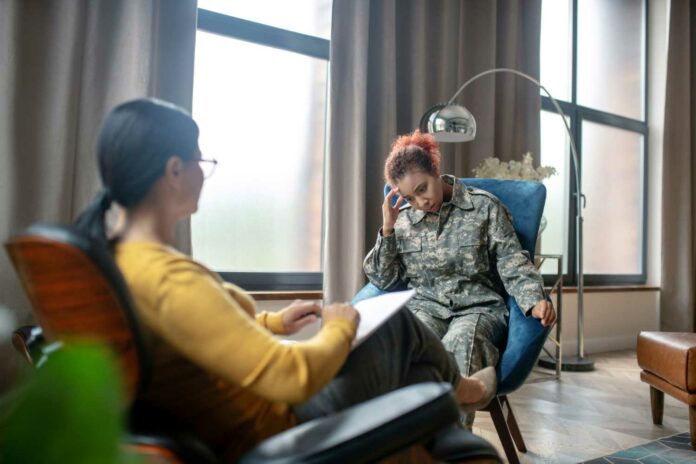For military veterans, hidden wounds like traumatic brain injuries (TBI) often lead to issues like PTSD, anxiety, depression, and even suicide. Traditional treatments have limited success. Stanford Medicine researchers found that combining ibogaine, a plant-based drug, with magnesium improves mental health and functioning in veterans with TBI. A study with 30 U.S. special forces veterans shows promising results.
Nolan Williams, MD, an associate professor of psychiatry and behavioral sciences, said, “No other drug has ever been able to alleviate the functional and neuropsychiatric symptoms of traumatic brain injury. The dramatic results, and we intend to study this compound further.”
Traumatic brain injuries (TBIs) from events like explosions or accidents can lead to brain function changes, causing neuropsychiatric symptoms. Many veterans from Afghanistan and Iraq suffer from TBIs, linked to high rates of depression and suicide. Traditional treatments are not always effective, prompting research into alternatives.
Ibogaine, a natural compound from the African shrub iboga, shows promise. Used traditionally in spiritual ceremonies, ibogaine gained attention for its potential to treat addiction and depression. Though restricted in the U.S., legal treatments are available in Canada and Mexico.
Williams said, “There were a handful of veterans who had gone to this clinic in Mexico and were reporting anecdotally that they had great improvements in all kinds of areas of their lives after taking ibogaine. Our goal was to characterize those improvements with structured clinical and neurobiological assessments.”
Stanford Medicine collaborated with VETS, Inc. to study psychedelic-assisted therapies for 30 special operations veterans with traumatic brain injuries (TBIs). These veterans, facing severe psychiatric symptoms, underwent treatment with magnesium and ibogaine at a Mexican clinic.
Before and after the treatment, their PTSD, anxiety, depression, and functioning were assessed. The veterans, initially experiencing significant disability and psychiatric disorders, demonstrated promising improvements post-treatment, showcasing the potential benefits of this approach for veterans with TBIs.
The use of ibogaine resulted in life-changing improvements for veterans. Post-treatment, there were significant and lasting enhancements in functioning, PTSD, depression, and anxiety. Average disability ratings dropped from mild to no disability, and participants experienced substantial symptom reductions.
Cognitive testing revealed improved concentration, information processing, memory, and impulsivity. Notably, there were no severe side effects or heart problems associated with ibogaine, showcasing its potential as a safe and effective treatment for veterans with traumatic brain injuries.
Researchers plan further analysis, including brain scans, to understand how ibogaine improves cognition for veterans. They see ibogaine not only as a potential treatment for traumatic brain injuries (TBI) but also as a broader neuro-rehabilitation drug. The study, independently funded by philanthropy, points to ibogaine’s potential in treating other neuropsychiatric conditions beyond TBI, such as PTSD, anxiety, and depression.
Journal reference:
- Cherian, K.N., Keynan, J.N., Anker, L. et al. Magnesium–ibogaine therapy in veterans with traumatic brain injuries. Nature Medicine. DOI: 10.1038/s41591-023-02705-w.
